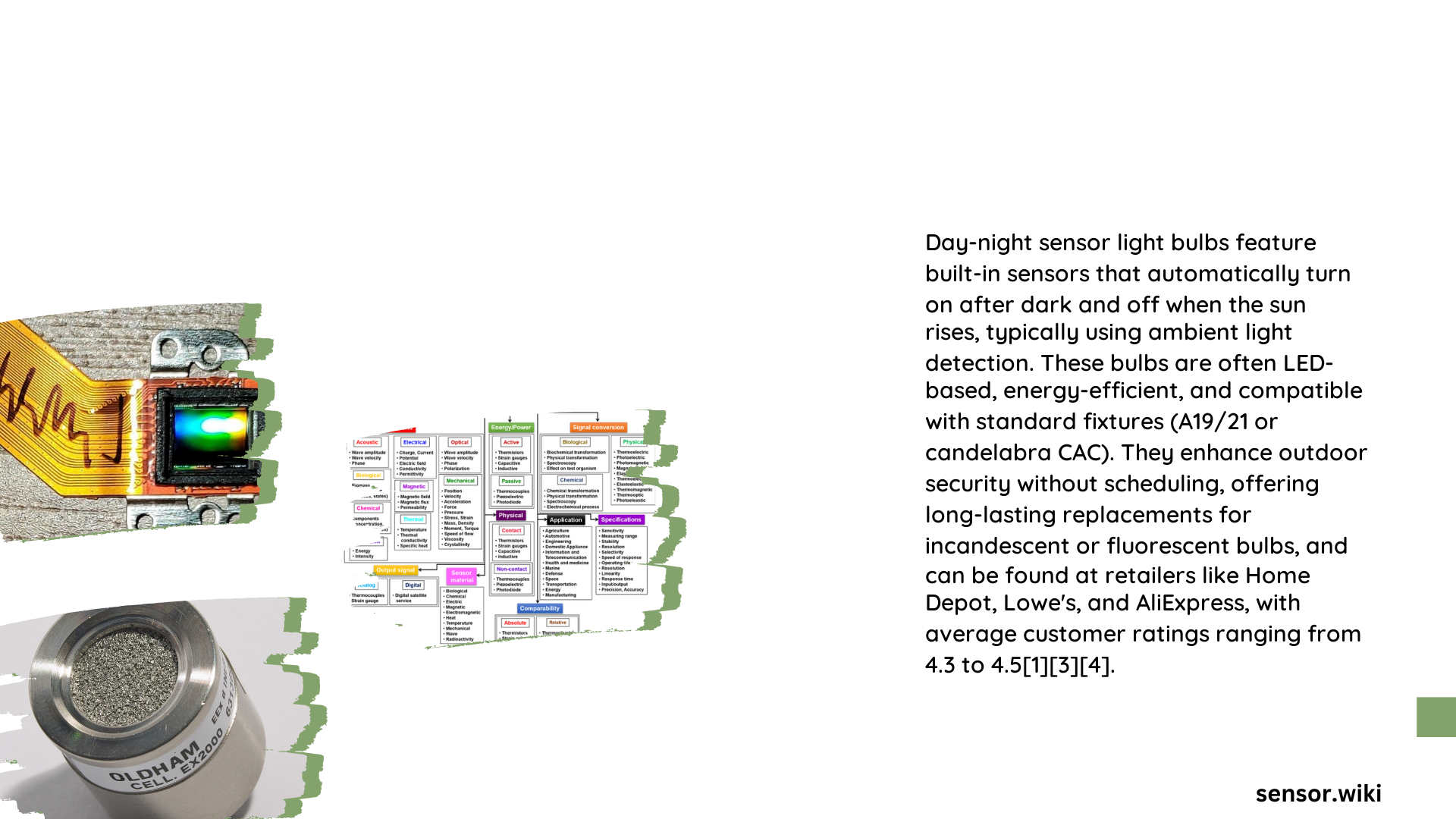Daynight sensor light bulbs represent a cutting-edge lighting solution that automatically adjusts illumination based on ambient light conditions. These innovative devices utilize advanced photoelectric sensors to detect natural light transitions, turning on at dusk and off at dawn, providing seamless, energy-efficient lighting without manual intervention. Homeowners can enjoy enhanced security, reduced electricity consumption, and convenient automated lighting management through these intelligent technological marvels.
What Are Daynight Sensor Light Bulbs?
Daynight sensor light bulbs are specialized LED lighting devices equipped with integrated photosensitive components that detect environmental light levels. These intelligent bulbs automatically activate during low-light conditions and deactivate when sufficient natural light is present.
Key Components of Daynight Sensor Technology
| Component | Function | Sensitivity Range |
|---|---|---|
| Photodiode | Light detection | 0.5-10 lux |
| Microcontroller | Signal processing | Millisecond response |
| LED Module | Illumination | 500-850 lumens |
How Do Daynight Sensor Light Bulbs Work?

The operational mechanism of daynight sensor light bulbs involves sophisticated sensor technology:
- Light Detection
- Photoelectric sensors continuously monitor ambient light levels
-
Triggers automatic switching based on predefined light thresholds
-
Energy Management
- Consume minimal power (5-12 watts)
- Provide consistent illumination during darkness
- Reduce unnecessary electricity consumption
What Are the Benefits of Daynight Sensor Light Bulbs?
Homeowners can experience multiple advantages by implementing these advanced lighting solutions:
- Enhanced Security: Automatic illumination deters potential intruders
- Energy Efficiency: Reduced electricity consumption
- Convenience: No manual switching required
- Extended Lifespan: Typically 15,000 hours of operational time
Where Can Daynight Sensor Light Bulbs Be Installed?
Versatile installation options include:
- Outdoor security lighting
- Garage entrances
- Porch and pathway illumination
- Backyard and landscape areas
- Interior hallways and utility spaces
What Should You Consider Before Purchasing?
Critical factors for selection include:
- Compatibility with existing fixtures
- Lumen output requirements
- Voltage specifications
- Sensor sensitivity range
- Weather resistance (for outdoor applications)
Technical Specifications to Evaluate
| Parameter | Typical Range |
|---|---|
| Wattage | 5-12 watts |
| Lumens | 500-850 lumens |
| Operational Lifespan | 13,000-15,000 hours |
| Voltage | 120V standard |
Maintenance and Troubleshooting Tips
- Clean sensor surfaces periodically
- Ensure unobstructed sensor visibility
- Check electrical connections
- Replace bulbs when luminosity decreases
Future of Daynight Sensor Light Bulbs
Emerging trends indicate increasing integration with:
– Smart home ecosystems
– Advanced machine learning algorithms
– Enhanced connectivity options
– More precise environmental sensing capabilities
Conclusion
Daynight sensor light bulbs represent a sophisticated solution for modern lighting needs, combining technological innovation with practical functionality. By understanding their mechanisms and benefits, consumers can make informed decisions about implementing these intelligent lighting systems.
